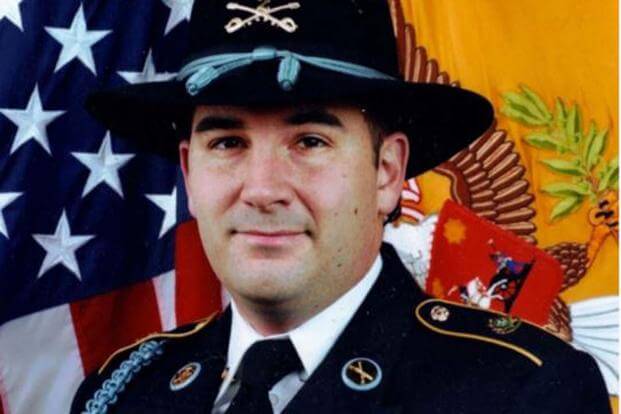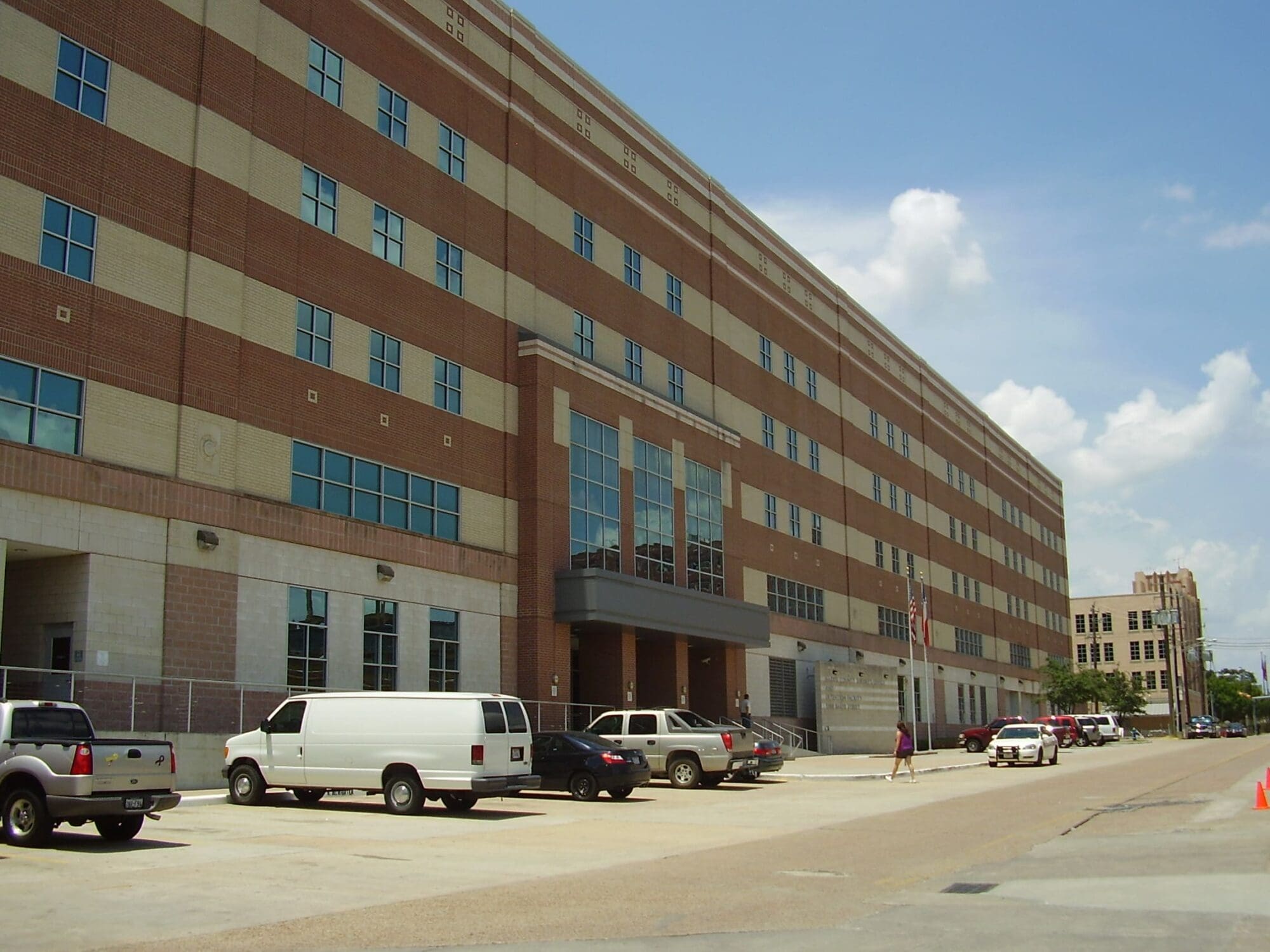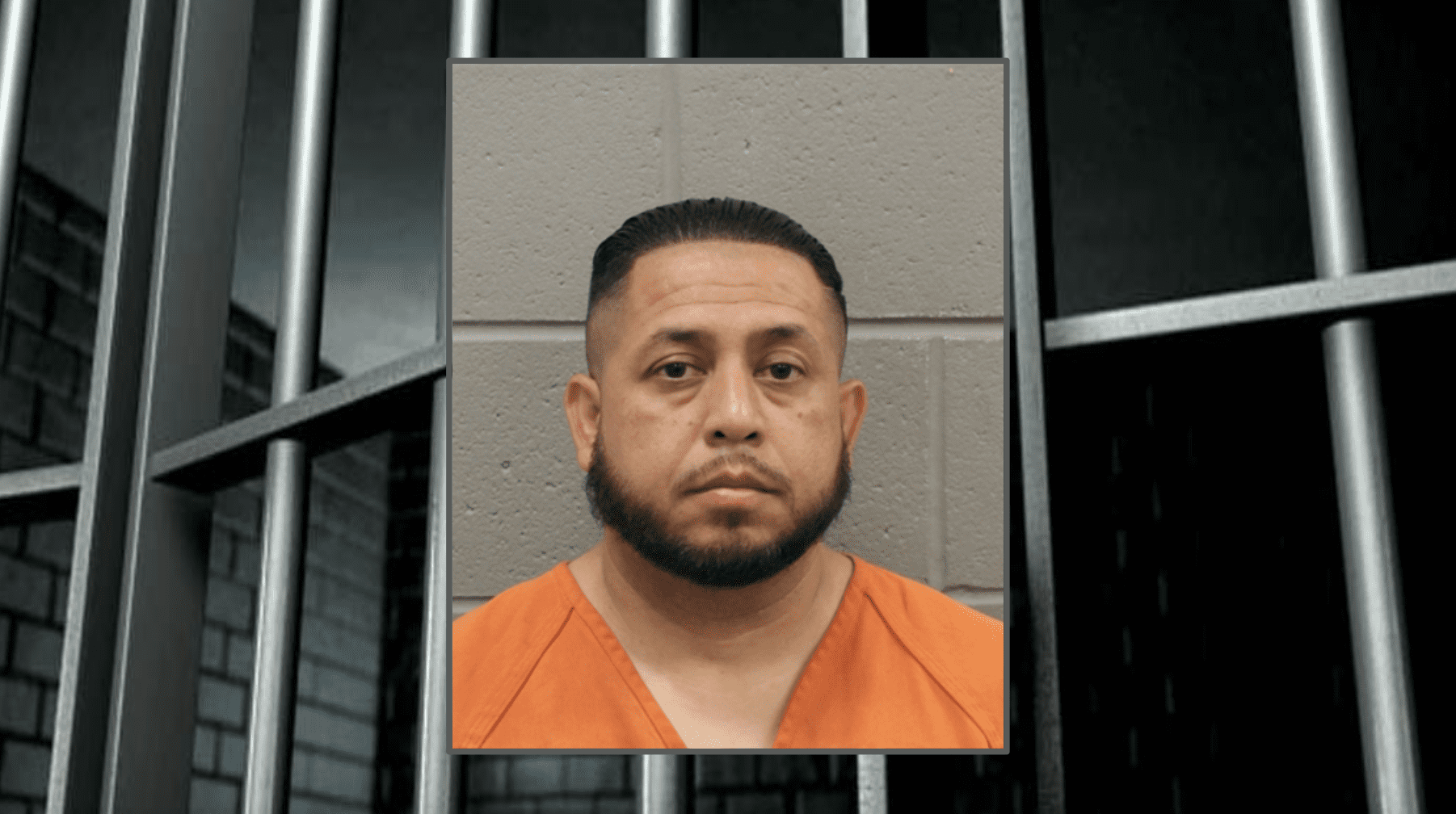Despite having been pardoned for murder by Gov. Greg Abbott, Daniel Perry continues to face prosecution in Travis County—now for misdemeanor “deadly conduct” tied to the same 2020 protest shooting. The lead detective in Perry’s case has come forward with allegations of prosecutorial misconduct and witness tampering, raising new questions about the integrity of the ongoing proceedings and actions of local prosecutors.
A Travis County judge had previously sentenced Perry, a former Army sergeant, to 25 years in prison for murder after District Attorney Jose Garza prosecuted him for shooting and killing Garrett Foster, an armed Black Lives Matter protester. The July 2020 incident occurred in downtown Austin while Perry was driving for Uber.
During his trial, Perry’s defense team stated that Foster raised a firearm at Perry, leading him to use his handgun in self-defense.
Gov. Greg Abbott pardoned Perry in May 2024.
However, even if a person is pardoned for a felony, they can still be prosecuted by the county attorney for additional misdemeanors stemming from the same incident.
Thus, Perry is still being prosecuted for his actions—this time for “deadly conduct,” a misdemeanor punishable by up to a year in jail.
Travis County Attorney Delia Garza’s office—which is prosecuting Perry for this lesser charge in the Travis County Court at Law No. 8—claims that the use of his vehicle leading up to the 2020 altercation endangered bystanders.
The Indictment
Perry was indicted for the deadly conduct charge on June 24, 2021—the same day he was indicted for murder. The indictment alleges that he engaged in reckless conduct and placed a group of pedestrians walking in the roadway on Congress Avenue in imminent danger of serious bodily injury by:
- Texting while driving
- Turning right at a red light without first coming to a complete stop
- Turning into an intersection where pedestrians were visible in the crosswalk and by driving into a group of people in the roadway
The lead detective was Sergeant David Fugitt. He is described as a well-respected, long-time homicide detective formerly with the Austin Police Department.
Fugitt provided Texas Scorecard with his analysis of the flawed indictment:
Daniel Perry is guilty of running a red light. That has never been in dispute.
Daniel Perry signaled intent, negotiated the turn at less than half of the posted speed, maintained a single lane and, by all accounts, his vehicle did not contact a single person.
None of the protesters ever reported that Daniel Perry was texting at the time which is corroborated by his call detail records and data extracted from his cellular telephone.
The protesters were not utilizing the crosswalks as designed.
There are witness accounts that protesters swarmed and intentionally positioned themselves in the path of his vehicle.
Protesters worked in concert to surround and box in his vehicle, according to multiple witnesses.
Motion to Dismiss
In July 2024—almost four years after his initial arrest—Perry filed a motion to dismiss the indictment for the deadly conduct charge, arguing that his Sixth Amendment Constitutional right to a speedy trial was violated.
Perry also filed a request for an evidentiary hearing in support of the motion to dismiss based on prosecutorial misconduct.
The motion highlighted 19 instances in which counsel for Perry appeared in court, but the State’s prosecutor assigned to the case failed to appear. In each instance, nothing happened, and the case was reset.
“If the Constitutional right to a speedy trial has been denied, the only possible remedy is dismissal of the prosecution,” reads the motion. “Generally, a delay of eight months or longer is considered presumptively prejudicial.”
The motion also explained the practical inconveniences caused by such a delay.
“Equally important, the State’s delay has jeopardized Mr. Perry’s ability to mount a defense. It is patently unfair to subject a defendant to prosecution after a three-year delay,” the motion continued. “Defense witnesses may no longer be available, evidence lost and a myriad of other avoidable challenges which could have been avoided if the State ha[d] simply appeared in court.”
The State responded, arguing that Perry’s motion to dismiss should be rejected on the grounds that he had never actively requested a trial.
On July 22, the State extended an offer of 180 days in the Travis County Jail, with no credit for time served.
Doug O’Connell—Perry’s attorney—expressed his frustration with the offer.
“I’ve practiced criminal law in Travis County for 31 years and I’ve never seen anybody who has no criminal history, like Daniel Perry, be faced with a plea bargain offer of six months jail time for a first offense,” O’Connell told Texas Scorecard.
Motion to Quash Indictment
In October 2024, O’Connell filed a motion to quash the indictment for another reason.
He argues that the language of the indictment is so vague that it does not give him adequate notice of the charges against him. Specifically, the indictment fails to identify the unnamed pedestrians who were illegally walking in the roadway or specify the pedestrians allegedly in a crosswalk.
O’Connell argues such vagueness prevents Perry from adequately preparing for trial, violates his Confrontation Clause rights under the Sixth Amendment, and fails to protect him from being prosecuted twice for the same conduct.
The State claims that naming a “victim” is not required in the indictment of deadly conduct.
In January 2025, Judge Carlos Barrera denied Perry’s motion to quash but granted his request for an evidentiary hearing.
Evidentiary Hearing
The evidentiary hearing for Perry’s motion to dismiss based on prosecutorial misconduct was held on January 24, 2025.
Included in the hearing was testimony from Fugitt, who described the role of Justin Daisey—one of the protestors illegally marching on Congress Ave—in the Perry case.
Daisey allegedly fired a pistol at Perry’s car, not in self-defense, but to “mark Perry’s car for law enforcement.”
O’Connell argues that “the fact that Justin Daisey shot a car three times on Congress Avenue but was not charged with Deadly Conduct or any other crime constitutes evidence of Selective Prosecution.”
Fugitt agrees with this conclusion, telling Texas Scorecard his theory for Perry’s alleged selective prosecution.
“Jose Garza stated that he has been inspired by the Black Lives Matter movement and talked about the discretion vested in his office,” said Fugitt. “Jose Garza publicly stated that the District Attorney is an independent executive who makes decisions about whether people get charged with crimes, who gets charged with crimes and what crimes they are charged with.”
“Several protesters, turned State witness[es], had criminal charges in Travis County stemming from the 2020 riots. Each had their criminal charges dismissed prior to the trial of State of Texas v. Daniel Perry,” he continued.
Fugitt also alleged witness tampering.
He testified that “prosecutors at the Travis County District Attorney’s Office ordered, directed, and instructed him not to mention or discuss in front of the Grand Jury certain items from his investigation.”
The prosecutors also allegedly instructed Fugitt to remove slides from his Grand Jury powerpoint presentation. He would sign an affidavit describing how he was tampered with as a witness prior to his appearance before the Grand Jury.
“Never before had I been prohibited by a District Attorney from presenting exculpatory evidence to a grand jury process intended to determine if there is evidence to justify charges in addition to protecting the innocent from overzealous prosecution,” said Fugitt.
After the affidavit was filed on August 3, 2021, Fugitt allegedly faced retaliation by District Attorney Jose Garza. That same day, evidence shows Garza called then-Police Chief Joseph Chacon.
The following day, Assistant Chief Richard Guajardo reportedly approached Fugitt in his cubicle and threatened him with an internal affairs investigation for providing the affidavit. According to Fugitt’s testimony, Guajardo told him that DA Garza called Chacon and “chewed his ass” over the fact that one of his detectives accused him of a crime.
Though an internal affairs complaint was drafted, Fugitt was never subjected to an investigation.
O’Connell asked the court to dismiss the case on the grounds that there was prosecutorial misconduct. On February 4, Judge Barrera decided not to dismiss the indictment. He argued that he had not been presented with “extraordinary circumstances” needed to justify a dismissal.
Motion for Change of Venue
On April 2, O’Connell filed a motion seeking to move Perry’s trial out of Travis County, arguing that he is “universally hated” there. Perry believed that due to being such a high-profile case with negative public opinion, he could not obtain a fair and impartial jury trial in the county.
O’Connell also filed a document arguing how the famous 1995 Selena case set the precedent to move Perry’s case to a different court.
During an August 5 hearing, Judge Barrera stated he did not know about the filing, and that it was never brought to him by the clerk. The document was hastily printed for Barrera’s review.
Barrera said that he had not read the opinion in the Selena case. Nonetheless, he decided that the precedent was not relevant, and that a change of venue was not necessary.
He argued that the case is so high-profile that no matter where the case was moved to, anybody with internet access could be aware of public sentiment surrounding the case.
The next pretrial hearing is scheduled for September 29 at 1 p.m. Perry himself is excused from attending.
Abbott and Jose Garza did not respond to Texas Scorecard’s request for comment in time for publication. Best efforts were made to reach Chacon and Guajardo.
Diana Melendez—senior counsel for communications and community engagement for the Travis County Attorney’s Office—refused to comment on pending litigation.
If you or anyone you know has information regarding judicial malfeasance, please contact our tip line: scorecardtips@protonmail.com.





